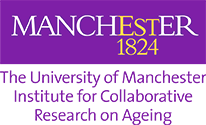Investigating the impact of frailty on the risks and benefits of hip and knee replacement surgery
This PhD project is funded by the National Institute for Health Research (NIHR) and aims to look at whether an individual’s level of frailty influences their outcomes following hip or knee replacement.
Hip and knee replacements may be offered to people with osteoarthritis - a painful disease affecting joints. Currently, osteoarthritis cannot be cured, and for some people with severe osteoarthritis, having a hip or knee replacement may be a suitable treatment.
Many people who have a hip or knee replacement are over 65 years old, and some may also have frailty. The word frailty, as used in research, refers to how multiple long-term health conditions reduce how well an individual can respond to biological stress, for example following an infection, injury, or surgery. Mike Cook is the researcher working on this project and will use detailed anonymised data collected by the NHS during routine care. This including data from questionnaires completed by patients before and after hip or knee replacement.
Aims and objectives
This project will provide important information about the impact of frailty on outcomes following joint replacement surgery.
Professor Terence O’Neil / Professor of Rheumatology and Clin Epidem
Aims
- Level of frailty impacts on outcomes following hip or knee replacement, including adverse outcomes, as well as improvement in pain.
- People with osteoarthritis are more likely to become frail compared to people without osteoarthritis.
- Having a hip or knee replacements impacts the progression of frailty.
Manchester researchers
Principal Investigator:
- Professor Terence O’Neil, School of Biological Sciences University of Manchester
Co-Investigators:
- Dr Mark Lunt, School of Biological Sciences, University of Manchester
External partners
Professor Tim Board, Wrightington, Wigan, and Leigh NHS Trust
PhD student
Michael Cook
Subject areas
- Epidemiology
- Biostatistics
Funding period
January 2019 – September 2022
